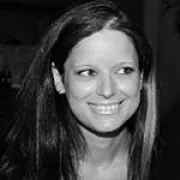You can show a war without showing a gun.
Ever since its invention back in the 19th century, photography has been documenting life. At the same time, it focuses on inviting audiences to a rather subjective world, while trying to be taken seriously as an art form. Photography has always been considered a male-dominated profession, but luckily things are changing. Scholars, writers, bloggers, photography students, and enthusiasts have been giving due to the female pioneers of the field. Most of them were always standing and/or hiding in the shadows, oblivious to how much they could acclaim and accomplish. Arguably, the technique, concepts, and thematic female photographers use differ from those of male photographers. At a time when most women were convinced that their place was in the kitchen and certainly not in the dark room, there were those who were struggling to surpass their male counterparts and work towards gaining respect and recognition for their work.

Alexandra Boulat (French photographer, 1962-2007) was born in Paris. Her father, Pierre Boulat, was a photographer for Life magazine for many years, and Alexandra began as his assistant. Her mother, Annie, founded the Cosmos Photography Agency, based in France. Alexandra was originally trained in graphic arts and art history. In 1989 she became a photojournalist, gaining representation by Sipa Press for 10 years long, until 2000. In 2001 she co-founded VII Photo Agency. Her news and feature stories can be seen in various International magazines, more especially in National Geographic Magazine and Paris-Match. Boulat covered news, conflicts, and social issues as well as extensive reportages on countries and people. Among her main and diverse assignments, she reported on child trafficking in Romania, Yasser Arafat's family life, and Yves Saint Laurent's last show in 2001. She also covered the conflicts in former Yugoslavia from 1991 until 1999, including Croatia, Bosnia, and Kosovo; the Palestinian and Israeli conflict, the war against terrorism in Pakistan and Afghanistan, the Iraqi people under the embargo in the 90s, and the invasion of Iraq by the coalition in 2003. Other extensive assignments include country portraits on Taiwan, Indonesia and a people story on the Berbers of Marocco. Her last important work was on Muslim women in Asia Minor and the Middle East. Her pictures are in several museum collections, including the French Fond National d'Art Contemporain and the Maison Européenne de la Photographie in Paris. In June 2007, she suffered a ruptured brain aneurysm and spent three weeks in a hospital in Israel in a medically induced coma. She was moved to France, where she remained in a coma. Thousands of colleagues and fans expressed support for her. She died in her sleep in Paris on 5 October 2007. Boulat was named Knight of the Order of Arts and Letters in 2007. The award-winning photographer was known for her clear and descriptive style and her knack for making emotionally moving, often idiosyncratic images of people affected by war. Alexandra Boulat was the architect of one of the most deliberate, focused, and militant bodies of work on the victims - particularly women - of conflict and injustice of our time.

My ethic is to tell the truth, to be journalistically sharp and, once on the field, not to go for the obvious only, but also to point out subjects and stories that are not being told too often.

We will continue talking about female names that left their mark on photography and about contemporary female photographers who are still to emerge. There are a lot of female photographers out there deserving of praise and we can only hope to cover as many of them as we can. Please follow this space to find out more.







